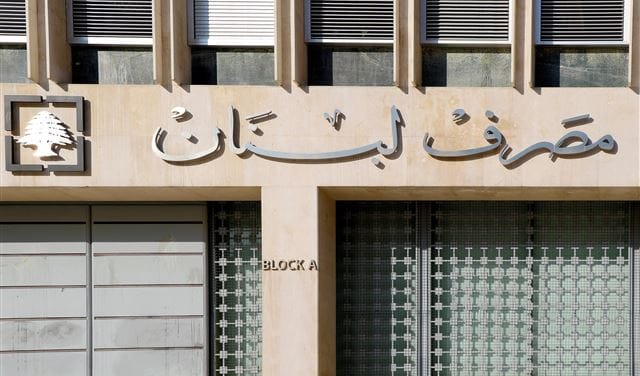كيف فرض مصرف لبنان إجراءات أمنية لحماية موجوداته خلال الحرب
لم تقتصر تداعيات الحرب الإسرائيلية على الخسائر البشرية والمادية التي تكبدها لبنان، سواء عبر الأرواح أو تدمير القرى والأحياء في الجنوب والبقاع وضاحية بيروت الجنوبية، وما ستتحمله الدولة من تكاليف ضخمة لإعادة الإعمار. ولكن الحرب كانت أيضاً سبباً في انتكاسة اقتصادية، حيث سعت الهيئات الاقتصادية إلى الحد من الأضرار المالية، في وقت كانت قدرات الدولة اللبنانية محدودة، ما جعلها عاجزة عن تحمل تبعات الحرب لفترة طويلة.
على الرغم من هذه الصعوبات، إلا أن مصرف لبنان المركزي استطاع الحفاظ على استقراره النقدي، إذ تمكن من تأمين السيولة المالية بالليرة اللبنانية والدولار الأميركي إلى جميع المناطق اللبنانية. لم تنقص السيولة النقدية من السوق، بل بقيت تداعيات الحرب بعيدة عن القطاع المالي.
وفي خطوة إضافية لتخفيف الأزمة، قرر المصرف المركزي زيادة قيمة المدفوعات للمودعين، وهو ما ساعد أكثر من 400 ألف مودع في التغلب على تداعيات الأزمة المالية في لبنان.
إجراءات مصرف لبنان لحماية الاستقرار المالي
بحسب المعلومات المتوفرة، لم يكن تفادي تأثيرات الحرب على مصرف لبنان أمرًا عفويًا، بل كان نتاج خطة عمل محكمة أقرها المصرف المركزي. شملت هذه الخطة العديد من الجوانب الأساسية التي نجحت في تحقيق أهدافها، مما ضمن استقرار الوضع المالي في لبنان خلال الأوقات الصعبة.
من أبرز هذه الإجراءات كانت تعزيز إجراءات الأمان السيبراني ضد أي محاولات اختراق إلكتروني أو قرصنة للحسابات المرتبطة بالمصرف، خصوصًا تلك التي يتم التعامل معها مع بنوك دولية. كان المصرف المركزي يتابع هذه المسائل بشكل دقيق، حيث منع أي محاولة لخرق الأمان الإلكتروني، مما ضَمن استمرارية العمل دون أي تعطيل.
كما عزز مصرف لبنان الأمن داخل مبنى المصرف، إذ قام بتكثيف الحماية عبر حراس مخصصين لمغادرة المبنى فقط في حالات الطوارئ. كما أُقيمت أماكن إقامة خاصة لموظفي المصرف لضمان استمرارية عملهم في حال تعرضهم لمشاكل الوصول إلى العمل بسبب الاستهدافات العسكرية.
حماية موجودات المصرف المركزي
بالتوازي مع هذه الإجراءات، قام مصرف لبنان بإنشاء خزنات مصفحة لتخزين الأموال والعملات الأجنبية، بما في ذلك الذهب. هذا كان ضرورياً خصوصًا بعد توقف شركات الطيران الأجنبية عن العمل، مما حال دون إمكانية تحويل الأموال إلى الخارج. في حال حدوث أي أزمة أمنية داخلية، كان المصرف قد اتخذ تدابير لحماية هذه الأصول، مما جعل من غير الممكن سرقتها أو تدميرها.
كذلك، واجه المصرف مشكلة توقف شركات نقل الأموال إلى المناطق اللبنانية نتيجة الحرب. هذا التوقف كان يهدد بتعطل عمليات نقل الأموال، مما دفع مصرف لبنان إلى اتخاذ إجراءات استثنائية عبر استخدام سيارات خاصة ومصفحة لضمان وصول الأموال إلى المناطق المختلفة. وقد تمت توصية قوى الأمن الداخلي بشراء هذه السيارات المصفحة لضمان السلامة الأمنية في هذه الظروف الاستثنائية.
نجاحات مصرف لبنان في الحفاظ على الاستقرار المالي
في السنتين الماضيتين، كانت إجراءات مصرف لبنان على عدة أصعدة فعالة للغاية، أبرزها تثبيت سعر صرف الليرة اللبنانية ومنع المضاربة عليها. كما نجح المصرف في زيادة احتياطي العملات الأجنبية بنحو ملياري دولار، وتأمين السيولة اللازمة لرواتب الموظفين مع الزيادات التي جرت في الفترة الأخيرة.
كما عزز المصرف من مأسسة عمله، وهو ما نال إشادة واسعة من العواصم العالمية وصناديقها المالية، مما ساعد القطاع المصرفي اللبناني في البقاء بعيدًا عن تداعيات تصنيف لبنان في اللائحة الرمادية.
إلى جانب ذلك، لم يتأثر تعامل المصارف اللبنانية مع المصارف المراسلة الدولية بشكل كبير، ما أتاح استمرار العمليات المالية دون تغيير. ومع انتظار معالجة القوانين المتعلقة بأموال المودعين، يبقى مصرف لبنان مستعداً للتعاون مع الخطة الحكومية لإيجاد حلول لهذه الأزمة.
How Lebanon's Central Bank Implemented Security Measures to Protect Its Assets During the War
The consequences of the Israeli war on Lebanon went beyond direct losses in human lives and the destruction of villages and neighborhoods in the south, Bekaa, and southern Beirut suburbs. Lebanon also faces substantial financial costs for reconstruction. However, the war also led to an economic setback, with Lebanon's economic authorities trying to minimize losses while the Lebanese state's capacity to endure was limited.
Despite the widespread challenges, Lebanon's Central Bank managed to maintain monetary stability. It ensured a steady supply of both Lebanese pounds and U.S. dollars throughout the country. Financial liquidity in the market was never compromised, keeping the impact of the war away from the financial sector.
Additionally, the Central Bank increased the payment limits in circulars directed at depositors, benefiting more than 400,000 depositors during Lebanon’s crisis.
Central Bank Measures to Maintain Financial Stability
According to available information, avoiding the war's effects was not a mere coincidence or easy task. It was the result of a comprehensive action plan approved by Lebanon's Central Bank. This plan included key measures that were successful in achieving their objectives, ensuring financial stability during the critical periods of conflict.
One of the most notable actions was the enhancement of cybersecurity to prevent any potential financial hacking attempts, particularly concerning accounts linked with international banks. The Central Bank closely monitored cybersecurity threats, successfully blocking any hacking efforts, which ensured the continuation of financial services.
The Central Bank also increased physical security at its building by deploying guards who stayed on-site throughout the war. Moreover, special housing arrangements were made for the staff, ensuring their continued presence even during periods when transportation was hindered by attacks.
Protecting Lebanon’s Central Bank Assets
Alongside these measures, the Central Bank set up armored safes for storing both Lebanese and foreign currencies, as well as gold. This step became critical when foreign airlines ceased operations, making it impossible to transfer funds abroad. In the case of internal security risks, the Central Bank had already planned and implemented protective measures to ensure that no theft or destruction of assets would occur.
The Bank also faced challenges in transporting money across Lebanese regions due to the intensifying conflict. With money transport companies halting operations due to security concerns, the Central Bank took exceptional measures by using private armored vehicles for such transport. The Lebanese Internal Security Forces recommended that the Central Bank acquire these vehicles for security reasons.
Central Bank Success in Maintaining Stability
In the past two years, Lebanon's Central Bank has been successful on multiple fronts. It managed to stabilize the Lebanese pound, prevent speculation, and increased foreign currency reserves by nearly $2 billion. Furthermore, it ensured the liquidity needed for paying employee salaries, including the recent wage hikes.
The Central Bank’s institutional strengthening also received praise from international capitals and their financial institutions. This helped Lebanon's banking sector remain unaffected by its inclusion in the gray list, allowing Lebanese banks to continue operating with foreign correspondent banks without any disruption.
With the laws regarding depositors’ funds still pending, Lebanon’s Central Bank remains prepared to collaborate with the government’s plan to resolve the crisis.
Translated by economyscopes team
المصدر: رصد موقع سكوبات عالمية إقتصادية
 سكوبات عالمية إقتصادية – EconomyScopes إجعل موقعنا خيارك ومصدرك الأنسب للأخبار الإقتصادية المحلية والعربية والعالمية على أنواعها بالإضافة الى نشر مجموعة لا بأس بها من فرص العمل في لبنان والشرق الأوسط والعالم
سكوبات عالمية إقتصادية – EconomyScopes إجعل موقعنا خيارك ومصدرك الأنسب للأخبار الإقتصادية المحلية والعربية والعالمية على أنواعها بالإضافة الى نشر مجموعة لا بأس بها من فرص العمل في لبنان والشرق الأوسط والعالم




